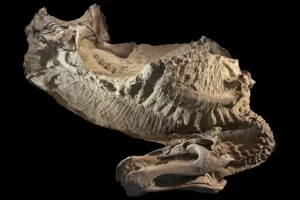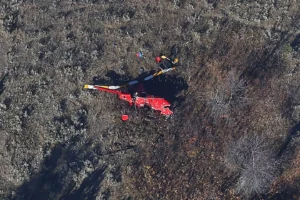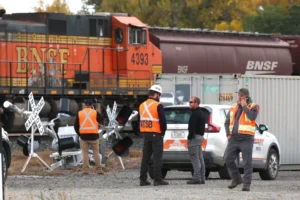Casper Native Investigates Wyoming’s High Suicide Rate in New Documentary
Brooke Schmill revisits problem 10 years after release of first film
- Published In: Other News & Features
- Last Updated: Sep 13, 2023
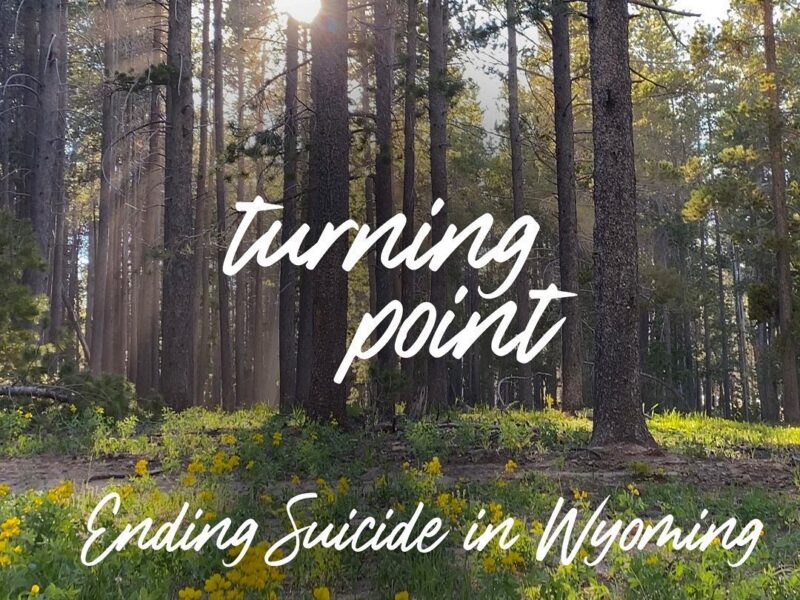
Filmmaker and Casper native Brooke Schmill returns to Wyoming for the screening of her second documentary addressing the state's consistently high suicide rate. (Courtesy photo from Brooke Schmill)
By Jennifer Kocher
Special to the Wyoming Truth
This story contains references and information about suicide. If you or someone you know is in crisis, call the National Suicide Lifeline at 988, 24 hours a day, seven days a week.
GILLETTE, Wyo.–Casper native Brooke Schmill was 16 when her classmate killed himself. As a young person, Schmill was both shocked and devastated by the death and confused as to why nobody talked about it.
“My parents had never explained to me what suicide was, and I couldn’t stop thinking about how scary it was,” Schmill, now 33, said Monday night at the premiere of her 30-minute documentary film, “Turning Point: Ending Suicide in Wyoming,” at the Gillette College Tech Center.

The death continued to haunt her even after she moved to Berkeley, California, to finish high school. And, at age 21 with a film school program under her belt, Schmill returned to Wyoming to seek answers about the nature of suicide in her first short film, “I Only Cry in the Rain,” that was released in 2011.
A decade later, Schmill was troubled to learn that Wyoming’s high suicide rates remained virtually unchanged. Once again, she turned her camera outward to ask why.
“I thought it’d be interesting to see what’s happened over the past 12 years,” said Schmill, whose film also will be screened in Rock Springs, Casper, Lander and Jackson. “After doing preliminary research, it felt like nothing had changed.”
After taking a course for first-time documentary filmmakers at the Sundance Film Festival in 2021, Schmill returned to Wyoming a year later to interview families touched by suicide, civic leaders and others on the frontlines. She teared up as she recounted the hard conversations, as well as her frustration that the problem remains as acute as it was a decade ago.
“I think one of the most frustrating things is that the numbers aren’t changing,” she said.
Beyond numbers
In 2022, 149 suicides were reported in the state, according to the Wyoming Department of Health. This number was down 20% from 190 suicides in 2021. In 2020, there were 182 suicides in the state and 170 in 2019.
People gloss over these statistics, Trish Simonson said Monday; this is why she shares her own story about losing her 15-year-old son, Kaden Simonson, to suicide in 2015. A Gillette City Council member, Simonson was featured in Schmill’s documentary and has also written a book about her experience, “The Road Back to You: Finding Your Way After Losing a Child to Suicide,” published in 2022.
Simonson’s son was not the “typical” child you would think would be prone to suicide, she told the Wyoming Truth, in that he was a popular athlete who seemed to have no inward struggles. Simonson said when she talks about his death, she refers to a photo of Kaden hugging a dog.
“I always tell people that this is what suicide looks like,” she said. “Every time I’ve talked to a parent after they’ve lost their child, they have said, ‘I just don’t understand why. I wish I knew why.’ But I think that when somebody is in that place, thinking there is no hope at all, they are just in the throes of desperation.”
Emil Pendleton, 87, of Rozet, attended Monday’s screening to learn more, because while he personally hasn’t been impacted by suicide, his three granddaughters have.
“My granddaughters are of the age where they all know someone who has passed,” he said. “Their peers are suffering, and I’d like to know why.”
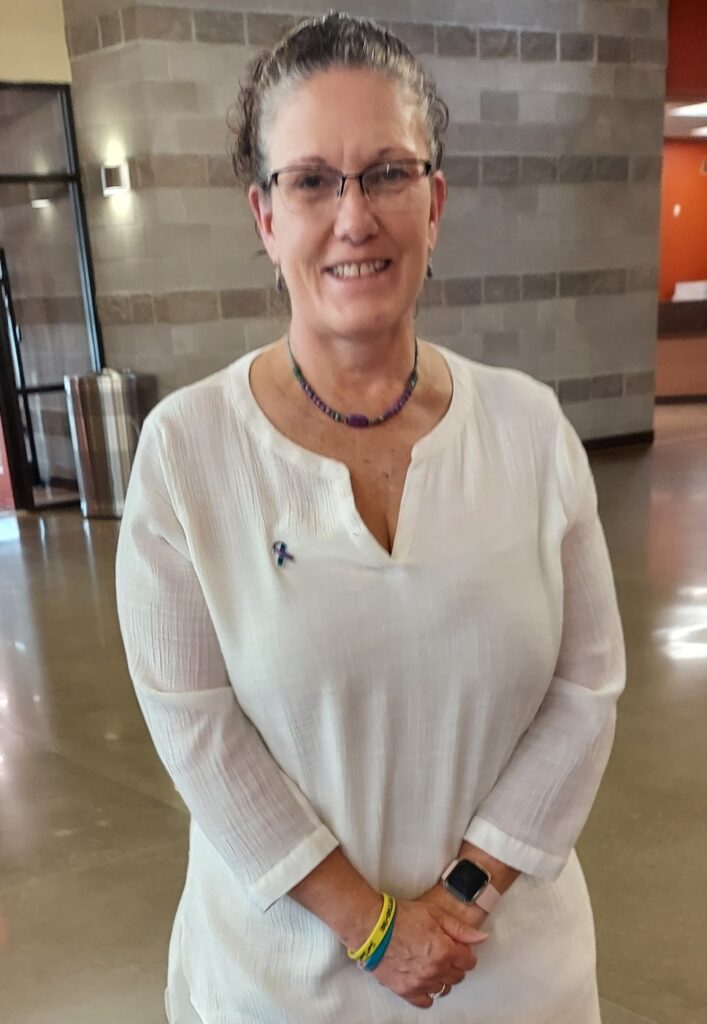
The ‘suicide belt’
Others interviewed in the documentary, such as Teton County Sheriff Matt Carr, noted that suicide impacts people from all walks of life, including first responders who are tasked with attending to those contemplating suicide.
“We have a very disparate community…we’ve got some very wealthy folks as well as people that are working two or three jobs just to be able to change lives here,” he said in the film. “We see the mental health crisis is completely across that spectrum.”
Carr also addressed the shortage of mental health resources for people in crisis, noting that they are often kept in jails because law enforcement doesn’t have access to inpatient facilities.
“I’m very concerned with the state level and with the capabilities of the state hospital and their limitations,” Carr said, noting the lack of mental health resources for people in need.
Natrona County Coroner James Whipps, who also appeared in Schmill’s film, said Wyoming is part of the “suicide belt” running the swath of mountainous land from the tip of Montana down to New Mexico.
“There’s been more research done on what’s going on around here from the altitude to the wind to the cowboy-up attitude that’s been prevalent in the state since its inception,” Whipps said in the film. “And nothing has panned out. There’s got to be something that’s different in the way that we think and formulate conclusions than a lot of the rest of the world, and I just don’t know what that is.”
When he returned from military service in Iraq, Whipps said he suffered from suicidal ideations that he also struggled to understand.
“That’s probably one of the more frustrating things, because you can’t generalize it,” Whipps said of why people take their lives. “Each case that I go out on is unique.”

The documentary featured interviews with parents who lost children to suicide and now volunteer to help those in crisis. Schmill also interviewed civic leaders, such as Lander Mayor Monte Richardson, who connect those in crisis with mental health and suicide prevention resources.
Long way to go
Addressing an audience of over 30 people at the premiere, Schmill was visibly emotional as she recounted her conversations with those impacted by suicide while making the film.
Schmill, who holds a business degree from the University of Wyoming and now works in the hospitality industry in Berkeley, said that despite the state’s consistently high suicide rate, she’s encouraged that so many people openly discussed suicide and mental health.
“I hope that people could start thinking about their mental health and learn how to recognize when they need extra support and when they need to go to the doctor—and just have it be that simple,” Schmill said. “I think people intellectualize too much about what’s right or wrong or I’m wrong for feeling this way. We really want to help them to make a plan and quit that train of thought.”
“Turning Point: Ending Suicide in Wyoming” will be available to the public in mid-October. See Brooke’s Productions for details.



